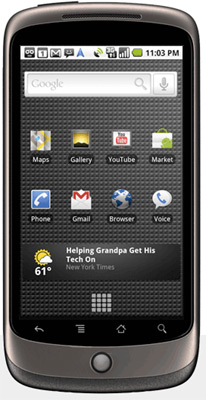“The fact is as much as 5G is going to be tremendous, and it’s going to bring an amazing architectural shift to our economy and to our markets and economy, it’s still not here,” says Skyworks Solutions CEO Liam Griffin. “It is here in certain areas but the rollout has been somewhat delayed due to the pandemic.”
Liam Griffin, CEO of Skyworks Solutions, discusses on CNBC how the pandemic has temporarily delayed 5G but ultimately it will be a big part of a whole new world.
It’s a Stay At Home World Right Now
It’s a stay at home world right now (due to the pandemic). I talked about the digital traffic jam three or four years ago. At that time we talked about the networks being compressed and taxed and digitally clogged and we’re seeing this today. I mean it’s great that we’re seeing the network interfaces and the data traffic and the ability to do what we’re doing but we’re nowhere near where we’re headed.
We’ve got a long way to go in 5G. We’ve also got incredible Wi-Fi technologies coming. I think this pandemic situation is very difficult. It is a challenge and a big deal. But I think the technologies that we’re working on in our ecosystem with partners like Verizon and infrastructure players and even the Chinese⎯we’re all coming together to make this work. It’s a real indication of how necessary these applications are to the economy.
5G Delayed Due To The Pandemic
The fact is as much as 5G is going to be tremendous, and it’s going to bring an amazing architectural shift to our economy and to our markets and economy, it’s still not here. It is here in certain areas but the rollout has been somewhat delayed due to the pandemic. However, we’re going to see a bigger uptick in the second half.
We’re working with the marquee companies largely in the US, China, and Europe and we’re seeing some great technologies. They’re going to launch, it’s just delayed right now. That’s where we’re going to see the quality, the experience, the bandwidth upside that we’ve been talking about. That will happen.
5G Is a Multi-Year Thematic Move
5G is a multi-year thematic move. The interesting thing is that people today are clamoring to get the technology. The issue that we have and in what manifests in the demand weakness has really come about by a supply shock. It’s the supply chain in Asia and other parts of the world where folks couldn’t go to their factories and work. It creates a delay but we don’t think it’s perishable.
We think this 5G technology is absolutely going to launch. Some of that demand that did not get executed in our Q1 or Q2 will move forward into the back half of 2020 and certainly into 2021. We see this as a pause more than a complete deep dive.
Interesting Applications Are Really Emerging Through 5G
I saw the Verizon CEO talking about a 20 percent upside in data traffic and Vodafone also just announced a 50 percent increase in data traffic. So if you look at how this works, the smartphone⎯that’s your quarterback. They’re doing a lot of the work. But think about the IOT space, machine to machine, autonomous driving, and security. All of these interesting applications are really emerging through 4G, 5G and higher speed Wi-Fi. It’s creating a new experience.
If we look at what we’re doing with the young people today, the Millennials, I got three kids, they’re all face-timing. It’s just a whole new world. In a way, I think there are some real positive thematic changes that we can capitalize on once we get through this challenge with the pandemic.








 According to
According to 
 From the event, Google discussed and demonstrated the following features of the Nexus One:
From the event, Google discussed and demonstrated the following features of the Nexus One: